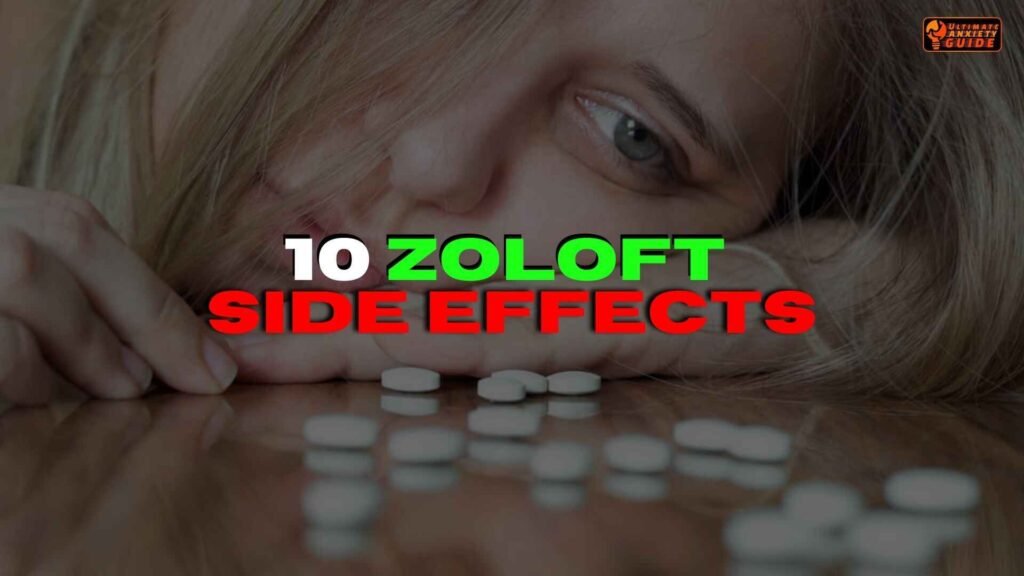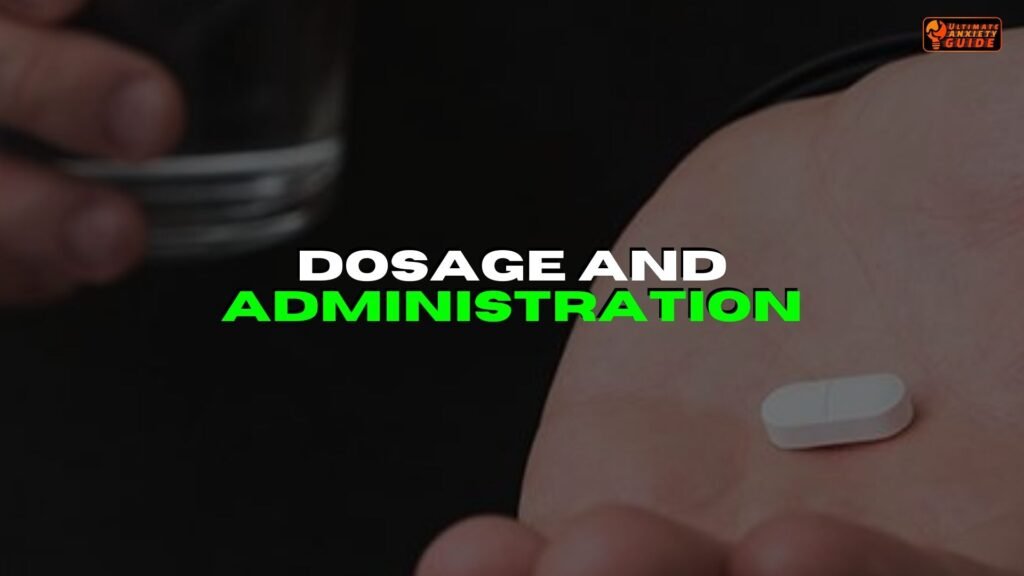Are you tired of anxiety holding you back? Find out how Zoloft for anxiety can help you feel more in control, calm your mind, and improve your daily life. Hurry up! Explore its benefits now!
Zoloft for anxiety is one of the most widely used medications for treating anxiety disorders. It works by increasing the levels of serotonin in the brain, which helps in reducing anxiety symptoms. One of the primary benefits of Zoloft for anxiety is that it significantly reduces feelings of constant worry and fear, making everyday life more manageable for those suffering from anxiety disorders. Many people find that after starting Zoloft, their racing thoughts and feelings of panic decrease, allowing them to regain control over their minds and bodies.
One of the key reasons Zoloft is so popular is because it stabilizes mood. People with anxiety often experience mood swings that can make daily interactions and tasks difficult. Zoloft for anxiety helps smooth out these emotional highs and lows, creating a more stable emotional state. By reducing anxiety and stabilizing mood, Zoloft helps users live more balanced lives. This is particularly important for people who deal with social anxiety, as Zoloft can make them feel more comfortable in public and social settings.
Okay, now, without further ado, let’s dig into all the details. Are you pretty much excited to learn more? Alright! Let’s get started!
What is Zoloft and How Does it Work?

Zoloft is a medication often prescribed for anxiety, depression, and other mental health issues. It belongs to a class of drugs called SSRIs (Selective Serotonin Reuptake Inhibitors). Zoloft’s primary way of working is by increasing serotonin levels in the brain, a neurotransmitter that plays a crucial role in mood regulation. By enhancing serotonin availability, Zoloft for anxiety helps to reduce feelings of anxiety and stress, making it easier for individuals to cope with daily challenges.
When taken as directed, Zoloft for anxiety can help improve overall mental well-being. Many users find that they feel calmer and more balanced in their emotions. This can lead to a significant improvement in daily functioning, allowing people to engage more fully in their personal and professional lives.
10 Benefits of Zoloft for Anxiety

1. Reduces Anxiety Symptoms
Zoloft for anxiety is highly effective in reducing the core symptoms of anxiety. For those who constantly feel overwhelmed by anxious thoughts, Zoloft for anxiety can be a lifesaver. Many people find that, after starting this medication, they experience fewer racing thoughts and more peace of mind. This makes it easier to handle daily challenges without feeling crippled by anxiety. Zoloft targets the brain’s serotonin levels to bring about this calming effect.
Another benefit of Zoloft for anxiety is that it improves focus and concentration. Many individuals with anxiety struggle to stay on task because their minds are constantly racing. Zoloft helps slow these thoughts, allowing for better focus and mental clarity. This is especially useful for people who have anxiety that interferes with work or school. By managing these symptoms, Zoloft for anxiety promotes a more productive and manageable lifestyle.
Zoloft for anxiety also reduces the feelings of dread or unease that often accompany anxiety. Many people report feeling a general sense of worry throughout the day, even when there is nothing specific to worry about. Zoloft helps eliminate this background noise of fear, making it easier to enjoy everyday life. With consistent use, Zoloft for anxiety brings a noticeable improvement in overall mental well-being.
2. Decreases Physical Symptoms of Anxiety
Physical symptoms such as trembling, sweating, and a rapid heartbeat are common in people with anxiety. Zoloft for anxiety helps reduce these symptoms by calming the body’s response to stress. Many people find that they no longer experience these uncomfortable physical effects after starting Zoloft for anxiety. This allows them to feel more at ease in both social and personal situations.
Zoloft for anxiety also helps people who suffer from muscle tension. Anxiety often causes the muscles to tighten, leading to discomfort or even pain. By reducing the mental causes of anxiety, Zoloft for anxiety helps relax the body as well. Many users report feeling more physically comfortable after starting Zoloft, which contributes to their overall sense of well-being.
Additionally, Zoloft for anxiety can reduce feelings of dizziness or lightheadedness, which are common during anxiety attacks. This makes Zoloft for anxiety particularly helpful for people who suffer from panic attacks. By calming both the mind and the body, Zoloft for anxiety provides comprehensive relief from anxiety symptoms.
3. Stabilizes Mood
Mood swings are a common problem for people with anxiety. One moment you might feel fine, and the next, overwhelming sadness or frustration can set in. Zoloft for anxiety helps stabilize these mood swings, making your emotional life more predictable and manageable. This is one of the reasons Zoloft for anxiety is so effective in treating both anxiety and depression.
People who take Zoloft for anxiety often report feeling more emotionally balanced. The emotional highs and lows that once controlled their lives are smoothed out, allowing for a more stable mental state. This stability is crucial for maintaining healthy relationships and performing well in daily activities. Zoloft for anxiety enables users to focus on their responsibilities without being disrupted by their emotions.
Zoloft for anxiety also helps reduce feelings of irritability and frustration. These emotions are often side effects of anxiety and can strain personal relationships. By reducing these negative feelings, Zoloft for anxiety improves the quality of life for users, making it easier to engage in positive, meaningful interactions with others.
4. Reduces Panic Attacks
Panic attacks can be one of the most debilitating aspects of anxiety. These sudden, overwhelming episodes of fear can leave a person feeling completely out of control. Zoloft for anxiety has been proven to reduce the frequency and severity of panic attacks. This is especially helpful for people who experience panic disorder in addition to general anxiety.
Many people who start taking Zoloft for anxiety notice a significant decrease in their panic attacks after just a few weeks of treatment. This allows them to regain confidence in their ability to handle stressful situations. Zoloft for anxiety provides a sense of security, knowing that the chance of experiencing a panic attack has been greatly reduced.
Zoloft for anxiety also helps prevent the buildup of anxiety that often leads to panic attacks. By reducing the overall level of anxiety, Zoloft for anxiety makes it less likely that the individual will reach the point of a full-blown panic episode. This makes Zoloft for anxiety an excellent choice for people who deal with chronic panic attacks.
5. Improves Sleep
Anxiety often leads to restless nights, making it difficult to fall asleep or stay asleep. Many people who take Zoloft for anxiety report improvements in their sleep patterns. By reducing nighttime worries, Zoloft for anxiety makes it easier to relax and get a good night’s sleep. Better sleep leads to better focus, mood, and energy during the day.
Zoloft for anxiety also helps people stay asleep longer. Anxiety can cause frequent waking during the night, but Zoloft for anxiety helps maintain a more consistent sleep cycle. This allows for deeper, more restful sleep, which is crucial for overall health and well-being. A well-rested mind is better equipped to handle daily stressors, further reducing anxiety.
In addition, Zoloft for anxiety can help regulate the body’s natural sleep-wake cycle. For individuals whose anxiety disrupts their sleep patterns, Zoloft for anxiety can restore a healthy balance, ensuring that they get the rest they need to function at their best.
6. Enhances Social Confidence
Social anxiety can make interactions with others extremely difficult. Many people who suffer from social anxiety feel nervous or afraid in social situations, making it hard to connect with others. Zoloft for anxiety has been shown to reduce social anxiety, allowing people to feel more comfortable and confident in public settings.
Zoloft helps reduce the fear of judgment or embarrassment that often comes with social anxiety. By lowering overall anxiety levels, Zoloft for anxiety makes it easier to engage in conversations and social events without feeling overwhelmed. This improvement in social confidence can lead to better relationships and more opportunities for personal growth.
People who take Zoloft for anxiety often report that they no longer avoid social situations. They feel more capable of handling social interactions, which allows them to lead a more fulfilling and active social life. Zoloft for anxiety can greatly enhance a person’s quality of life by giving them the confidence to engage with the world around them.
7. Long-Term Mental Health Stability
One of the key benefits of Zoloft for anxiety is that it promotes long-term mental health stability. Unlike some medications that provide only short-term relief, Zoloft for anxiety offers lasting benefits that continue over time. By regulating serotonin levels in the brain, Zoloft for anxiety helps maintain emotional balance even during stressful periods.
Many people who take Zoloft for anxiety find that it helps them maintain a stable, healthy mindset in the long run. This is especially important for people who have chronic anxiety disorders. Zoloft for anxiety provides consistent relief, allowing users to feel more in control of their mental health over time.
Zoloft for anxiety also helps prevent the return of severe anxiety symptoms. Even during periods of high stress, people who take Zoloft for anxiety are better equipped to manage their anxiety without slipping back into old patterns of worry and fear. This makes Zoloft for anxiety an excellent choice for long-term treatment.
8. Low Risk of Dependency
Unlike some anxiety medications, Zoloft for anxiety has a low risk of dependency. This means that users can take it for extended periods without worrying about becoming addicted or needing higher doses to achieve the same effect. This makes Zoloft for anxiety a safer option for long-term use.
Many people who take Zoloft for anxiety appreciate that they don’t have to worry about increasing their dosage over time. This allows them to continue using the medication as part of their long-term treatment plan without fear of developing a dependency. Zoloft for anxiety offers effective relief without the risks associated with other anxiety medications.
The low risk of dependency also makes Zoloft for anxiety easier to discontinue if necessary. When the time comes to stop taking the medication, users can usually do so without experiencing withdrawal symptoms or needing a lengthy tapering process. This flexibility is another reason why Zoloft for anxiety is a popular choice among healthcare providers and patients alike.
9. Fewer Side Effects
Zoloft for anxiety is known for having fewer side effects compared to other anxiety medications. While some medications may cause drowsiness, weight gain, or other unpleasant effects, Zoloft for anxiety is generally well-tolerated. This makes it easier for people to stick with their treatment plan and experience the full benefits of the medication.
Common side effects of Zoloft for anxiety, such as nausea or headaches, tend to be mild and go away after the first few weeks of treatment. Most people find that these temporary side effects are a small price to pay for the relief that Zoloft for anxiety. The medication’s overall safety profile makes it a preferred option for long-term anxiety management.
Additionally, Zoloft for anxiety has a lower risk of causing fatigue compared to other medications. This allows users to remain active and engaged in their daily lives without feeling sluggish or tired. Zoloft for anxiety provides effective anxiety relief without sacrificing energy levels, making it easier to stay productive and active.
10. Adjustable Dosage for Personalized Treatment
One of the key advantages of Zoloft for anxiety is that the dosage can be easily adjusted to meet individual needs. Healthcare providers can tailor the dose to provide the most effective relief for each person. This personalized approach ensures that every user gets the right amount of medication to manage their anxiety without over-medicating.
Zoloft for anxiety allows for gradual adjustments in dosage, which makes it easier for users to find their optimal dose. Whether someone is just starting treatment or needs to increase their dosage over time, Zoloft for anxiety provides the flexibility needed for effective anxiety management. This ensures that the medication is working as efficiently as possible.
The ability to adjust the dosage also means that Zoloft for anxiety can be fine-tuned based on the user’s progress. If symptoms improve or worsen, the dose can be modified to ensure continued relief. This adaptability makes Zoloft for anxiety a powerful tool in the long-term management of anxiety disorders.
10 Side Effects of Zoloft

- Nausea: Many users experience nausea when starting Zoloft, though it often decreases after the body adjusts to the medication.
- Dizziness: Some individuals may feel lightheaded or dizzy, particularly when standing up quickly.
- Headaches: Headaches can occur during the initial stages of treatment but typically lessen over time.
- Dry Mouth: A common side effect is that dry mouth can be uncomfortable but can usually be managed with increased hydration.
- Changes in Sleep Patterns: Users may experience insomnia or drowsiness, affecting overall sleep quality.
- Weight Changes: Some individuals may notice weight gain or loss, which can vary depending on the person.
- Reduced Appetite: Zoloft can lead to a decrease in appetite, impacting food intake for some users.
- Sexual Dysfunction: Some people report changes in libido or difficulties with sexual performance while on Zoloft.
- Fatigue: Users may feel unusually tired or fatigued, especially during the early stages of treatment.
- Increased Sweating: Excessive sweating can be a side effect for some individuals taking Zoloft.
While these side effects can be concerning, they often diminish over time. It’s important to communicate any persistent side effects with your doctor to ensure optimal treatment.
Zoloft Interactions

Zoloft can interact with various medications and substances, impacting its effectiveness and safety. For example, taking Zoloft for anxiety alongside other antidepressants can lead to serious side effects. It’s crucial to inform your doctor about any medications, supplements, or herbal products you are currently using to avoid harmful interactions. This careful consideration helps ensure that Zoloft works effectively without complications.
Additionally, combining Zoloft with alcohol or certain pain relievers may increase the risk of side effects. Awareness of these interactions is vital for safe and effective treatment. By discussing your full medication list with your doctor, you can help maximize the benefits of Zoloft for anxiety while minimizing potential risks.
Zoloft Alternatives

If Zoloft for anxiety is not the right fit for you, there are several alternative medications available. Other SSRIs like Lexapro (Escitalopram) and Prozac (Fluoxetine) are commonly used and can effectively treat anxiety and depression. SNRIs (Serotonin-Norepinephrine Reuptake Inhibitors), such as Cymbalta (Duloxetine) and Effexor (Venlafaxine), are also good alternatives that work differently by affecting both serotonin and norepinephrine levels.
Other options include Buspirone, which specifically targets anxiety without the side effects associated with SSRIs. Additionally, medications like Trazodone can be helpful for anxiety, especially for those who have trouble sleeping. For individuals looking for non-medication options, therapies such as Cognitive Behavioral Therapy (CBT) and mindfulness practices can be beneficial. It’s essential to consult with your doctor to determine which alternative may be the best choice for your anxiety treatment plan. Exploring these alternatives can help you find the most effective way to manage your anxiety symptoms.
Dosage and Administration

Zoloft for anxiety is available in both tablet and liquid forms and is typically taken once daily. The standard starting dose for Zoloft is usually between 25 and 50 mg, depending on individual needs. It’s important to take the medication at the same time each day for consistency. Following the prescribed dosage can significantly enhance the effectiveness of Zoloft in managing anxiety.
Over time, your doctor may adjust the dosage based on how well you respond to the medication. This tailored approach ensures that you receive the most benefit from Zoloft for anxiety while minimizing side effects. If you miss a dose, take it as soon as you remember, but avoid taking two doses at once. This careful adherence to dosage helps maintain stable serotonin levels in the brain.
When and How to Use Zoloft?

Zoloft is commonly prescribed for various anxiety disorders, including Generalized Anxiety Disorder (GAD) and Social Anxiety Disorder. It is particularly beneficial when anxiety significantly impacts daily life. Most individuals start to notice the positive effects of Zoloft for anxiety within four to six weeks of starting treatment, helping them feel more grounded and less overwhelmed.
To achieve the best results, it’s important to use Zoloft consistently and not to stop suddenly without consulting a doctor. Discontinuing Zoloft abruptly can lead to withdrawal symptoms. Taking the medication as directed and being patient during the adjustment period can help ensure that Zoloft effectively manages your anxiety symptoms.
Important Considerations

Before starting Zoloft for anxiety, there are several important considerations to keep in mind. First, it’s essential to discuss any pre-existing health conditions, especially if you have a history of liver issues or seizures. Being open about your medical history can help your doctor determine if Zoloft is a safe option for you.
Pregnant or breastfeeding individuals should also discuss the potential risks and benefits of taking Zoloft with their doctor. This conversation helps ensure that you make an informed decision about whether Zoloft for anxiety is suitable for your situation. Keeping an open line of communication is vital for a successful treatment journey.
Conclusion
In summary, Zoloft is a widely used medication for managing anxiety. It works by increasing serotonin levels in the brain, leading to improved mood and reduced anxiety symptoms. While it may come with some side effects, most users find that the benefits of Zoloft for anxiety outweigh these concerns. Understanding how Zoloft works, its potential side effects, and when to use it can enhance the treatment experience.
If you are considering Zoloft for anxiety, it is essential to work closely with your doctor to monitor your progress. This partnership can help you achieve the best possible results while managing your anxiety symptoms effectively. With the right approach, Zoloft can be a powerful tool in improving your quality of life.
Final Thoughts
Zoloft for anxiety has been a beacon of hope for countless individuals striving to regain control over their lives. If you find yourself battling anxiety, know that you are not alone, and there are effective solutions out there. Embracing Zoloft can lead you toward a brighter, more fulfilling life, free from the heavy burdens of anxiety.
Remember, taking the first step toward treatment is a sign of strength. The journey may have its ups and downs, but with patience, determination, and the right support, you can overcome these challenges. Zoloft is not just a medication; it is a pathway to reclaiming your joy and passion for life. Stay committed to your health, and trust that better days are ahead. Your journey towards anxiety relief is not just possible—it’s within your reach! Embrace the journey, stay positive, and look forward to a future where anxiety no longer holds you back.
Engage with Us
Alright, dear visitors,
That’s all from my end. As of now, I’d love to hear from you—share your thoughts and experiences in the comments below. For more mental health-related content and updates, stay in touch with Ultimate Anxiety Guide and keep connected. If you want to connect personally, feel free to email us at ultimateanxietyguide@gmail.com.
Thanks a trillion for your time and effort.
Happy Browsing!
FAQs
